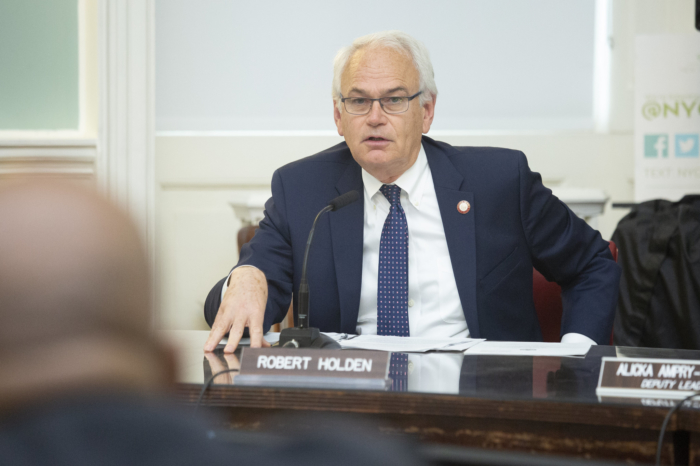By Tom Allon
Identity politics is an age-old term for voters picking one of their own. Up until the 1940s, the Irish largely dominated New York politics and ticket balancing meant having one Irish candidate, one Italian candidate and one Jewish candidate on the same slate to appeal to the dominant ethnic groups in the city.
But since the late 1980s, the minority population — blacks, Latinos and Asians — has been ascendant in Democratic primaries, while black and Latino candidates are thought to have a demographic advantage because of identity politics.
In 1989, New York’s first (and so far only) black mayor, David Dinkins, swept into office by winning 91 percent of the black vote as well as a broad coalition of Latinos and white liberals who were tired of 12 years of Edward Koch’s bombastic rule (and some very damaging third-term scandals).
Four years later, Dinkins won 83 percent of the black vote in a general election rematch against Rudy Giuliani. That drop of 8 percentage points in the black community proved to be the swing that allowed Giuliani to eke out a 50,000-vote victory.
Since 1993, the closest a minority candidate has come to Gracie Mansion was Bill Thompson’s surprisingly slim 5 percent loss to Mike Bloomberg in 2009.
In that election, Thompson won 78 percent of black voters, a strong margin, but far from Dinkins’ 91 percent.
If Thompson had won a higher percentage of the black and Latino vote in 2009, he would be running for re-election this year rather than slogging through a rather fractured Democratic primary field.
Will Thompson be able to win 70 percent of the black vote in the Sept. 10 Democratic primary, which would virtually assure him a spot in the run-off for the Democratic nomination? That is what his campaign is banking on, and it is certainly possible that this strategy will propel Thompson, a smart and decent man, to the mayoralty.
But the road to Gracie Mansion for Thompson is paved with speed bumps and potholes that could make this “identity politics” strategy a losing one.
As one Harlem activist recently pointed out to me: “John Liu is actually the blackest candidate in this race. People in the black community have more faith in it becoming ‘our turn’ if he wins than if Thompson does.”
This view is bolstered by the recent comments of Al Sharpton, who still speaks for certain segments of the black community. He took Thompson to task for not rejecting stop-and-frisk as a policing policy. Only Liu, of all the pandering Democrats, has said that he would put an end to stop-and-frisk, and this has endeared him to a number of black leaders.
Bill de Blasio’s wife is black and no doubt he will promote that in his appeal for African-American votes in the coming months. Christine Quinn, in her trailblazing attempt to become New York’s first woman and openly gay mayor, will no doubt win some support from black women who find gender more identifiable than race.
And then, of course, there is the penitent and charismatic candidate, Anthony Weiner, who launched his campaign on 125th Street and so far seems to be winning some sympathetic support in the African-American community (polls show him with 20 percent support among blacks).
So, how does this all affect Bill Thompson’s chances of winning? And does the fact that we now have a two-term black president take some of the urgency away from the New York African-American community’s eagerness “to elect one of our own”?
Traditionally, polls of black voters have been very inaccurate until right up to Primary or Election Day. Not until voters have been bombarded by television commercials, street posters, direct-mail literature and other political marketing tools do they finally make up their minds on whom to vote for — and history shows that minority voters are generally under-counted in polls.
This year’s Democratic primary for mayor is so far shaping up as a real horse race with no clear front-runner and no locks for the run-off.
And looming behind all this is one scenario that many Democrats fear: If the Democratic nominee comes limping out of a racially bruising run-off, does this leave the door open for yet another GOP victory for mayor in 2013?
Tom Allon was a Republican and Liberal Party-backed mayoral candidate in 2013 before he left the race to return to the private sector. Reach him at tallon@cityandstateny.com.





























